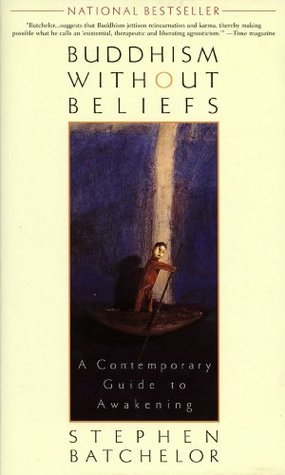More on this book
Community
Kindle Notes & Highlights
Read between
May 31 - June 4, 2021
The challenge of the first truth is to act before habitual reactions incapacitate us.
Or it may be focused in an intense perplexity that vibrates through the body and leaves the mind that seeks certainty nowhere to rest.
Buddhism could be described as “the culture of awakening.”
a culture: an internally consistent set of values and practices that creatively animates all aspects of human life.
No conditions are permanent; No conditions are reliable; Nothing is self. —The Buddha
Seven days later he had an awakening in which he understood the nature of anguish, let go of its origins, realized its cessation, and brought into being a way of life.
Since death alone is certain and the time of death uncertain, what should I do?
Agnosticism is no excuse for indecision. If anything, it is a catalyst for action; for in shifting concern away from a future life and back to the present, it demands an ethics of empathy rather than a metaphysics of fear and hope.
ANGUISH EMERGES FROM craving for life to be other than it is.
Dharma practice is founded on resolve. This is not an emotional conversion, a devastating realization of the error of our ways, a desperate urge to be good, but an ongoing, heartfelt reflection on priorities, values, and purpose. We need to keep taking stock of our life in an unsentimental, uncompromising way.
Self-confidence is not a form of arrogance. It is trust in our capacity to awaken. It is both the courage to face whatever life throws at us without losing equanimity, and the humility to treat every situation we encounter as one from which we can learn.
Ethical integrity is rooted in the sense of who we are and what kind of reality we inhabit. That we are isolated, anxious creatures in a hostile world may not be a conscious philosophical view but a gut feeling buried beneath the image of the compassionate and responsible person projected to the world. Only when one is frightened or overwhelmed by greed or hate is this underlying attitude revealed. Then each one experiences himself pitted against the rest of the world: one desperate soul struggling to survive among others. There are many ways to hurt others when we feel like this: from killing
...more
THERE ARE ALSO moments when we experience ourselves not at odds with others but as participants in a shared reality. As empathetic beings in a participatory reality we cannot, without losing our integrity, hurt, abuse, rob, or lie to others. Ethical integrity originates in empathy, for then we take the well-being of others to heart and are moved to be generous and caring. Our thoughts, words, and deeds are based on a sense of what we have in common rather than what divides us. But just because we feel deeply for someone’s plight and are motivated by the noblest intentions, this does not ensure
...more
This highlight has been truncated due to consecutive passage length restrictions.
ETHICAL INTEGRITY REQUIRES both the intelligence to understand the present situation as the fruition of former choices, and the courage to engage with it as the arena for the creation of what is to come. It empowers us to embrace the ambiguity of a present that is simultaneously tied to an irrevocable past and free for an undetermined future.
Even when I do things for the sake of others No sense of amazement or conceit arises. It is just like feeding myself; I hope for nothing in return. —Shantideva
Through both disciplined meditation and ongoing reflective inquiry, we can loosen the grip in which habitual perceptions of self and others hold us.
In theory, freedom may be held in high regard; in practice it is experienced as a dizzying loss of meaning and direction.
What is to be cultivated, according to the Buddha, is a path of authentic vision, ideas, speech, action, forms of life, resolve, mindfulness, and focused awareness.


